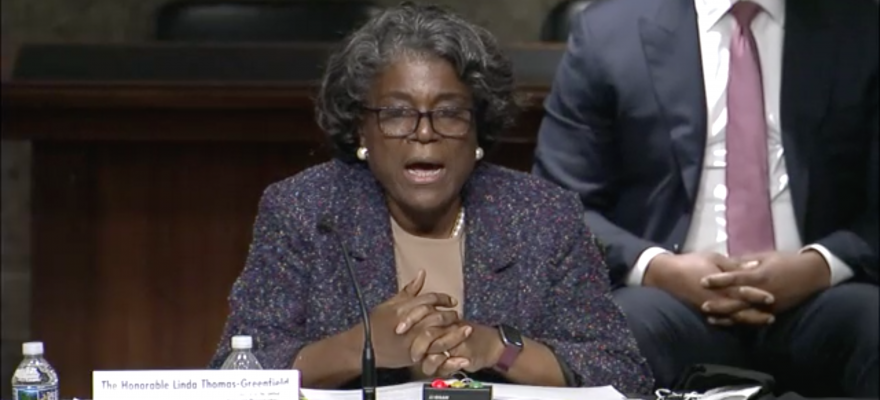Palestinians have ramped up terror attacks on Israeli civilians in shooting and car-ramming incidents, prompting IDF raids of Palestinian areas.
By Pesach Benson, United with Israel
U.S. officials at the White House, State Department and United Nations expressed concern on Wednesday over ongoing clashes in Judea and Samaria.
The comments were made in response to operations by Israeli security forces, who have arrested more than 2,000 terror suspects and prevented hundreds of terror attacks since launching Operation Wave Breaker in May. The near-nightly counterterrorism raids began following a wave of attacks in the spring that killed over 20 Israelis.
A significant number of the Wave Breaker operations have been in and around Jenin, a hotbed of Palestinian terror activity and planning.
On Wednesday, there were reports of Palestinians throwing a Molotov cocktail at an IDF jeep near the Jewish community of Yitzhar in Samaria and of shots fired at an Israeli car driving in Judea. No injuries were reported in either incident.
Palestinians also attacked Israeli soldiers in Jerusalem on Wednesday night after being incited by the Palestinian Authority’s and Hamas’ false claims that Jews are desecrating the Temple Mount. Scattered riots began Monday night in the Wadi Joz and Issawiya neighborhoods as Israel began celebrating Rosh Hashanah, the Jewish New Year.
On Wednesday morning, IDF soldiers and Border Police officers entered the Palestinian Authority-administered city of Jenin in northern Samaria, encircling the home of Ra’ad Hazem, the terrorist responsible for the deadly attack in Tel Aviv this April in which three men were murdered.
The Israeli military was attempting to apprehend a relative of Hazem. Terrorists operating in Jenin opened fire on the IDF forces, including Hazem’s brother, Abed Hazem. Israeli security personnel returned fire, killing four terrorists, including Abed Hazem.
While State Department spokesman Ned Price acknowledged the “more than 20 Israelis and other civilians” who “have been killed in terrorist attacks,” his comments to reporters appeared to focus on the “more than 100 Palestinians have been killed in the West Bank and more than 30 in Gaza.”
“We call on all parties to do everything in their power to de-escalate the situation and return to a period of calm. This is in the interest of all Israelis and Palestinians. As we have said for some time, we call on the parties themselves to contain the violence,” Price added.
“The United States and other international partners stand ready to help but we cannot substitute for vital actions by the parties to mitigate conflict and to restore calm.”
Price’s remarks were echoed by U.S. Ambassador to the UN, Linda Thomas-Greenfield, at the Security Council, which was holding its monthly session on the Israeli-Palestinian conflict.
“We are troubled by the overall trend of growing violence,” said Thomas-Greenfield.
“This includes terrorist attacks and incitement to violence against Israelis. This includes plans to develop Har Gilo West, which would further fragment the West Bank [Judea and Samaria] – and possible demolitions in Masafer Yatta. And this includes violence inflicted by Israeli settlers on Palestinians in their neighborhoods, and in some cases escorted by Israeli security forces,” she said.
Har Gilo West referrs to the Jerusalem District Planning Committee’s decision in early September to advance plans for a new Jewish neighborhood called Givat Shaked with 700 housing units adjacent to the Green Line.
Masafer Yatta referred to an Israeli High Court of Justice ruling in May allowing the IDF to evict 1,300 Palestinians living on a series of hills inside a military training zone south of Hebron.
Similar points were raised at the White House, where U.S. National Security Adviser Jake Sullivan was meeting with his Israeli counterpart, Eyal Hulata.
According to a White House readout of their meeting, Sullivan “stressed the need to take steps to de-escalate tensions in the West Bank, and to continue to take steps to improve the lives of Palestinians.”
